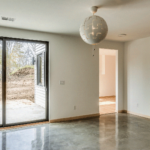Building a custom home is a dream for many, but before construction begins, you’ll need the right financing. A construction loans can help turn blueprints into reality, but the application process is more complex than applying for a traditional mortgage. Here’s a step-by-step guide to walk you through it.

Content
Step 1: Assess Your Financial Readiness
Before applying, review your financial health:
- Credit Score: Aim for at least 680+ for better approval odds.
- Debt-to-Income Ratio (DTI): Keep it below 45%.
- Down Payment: Prepare 20–25% of the project cost.
This ensures you’re in a strong position when approaching lenders.
Step 2: Choose the Right Lender
Not all lenders offer construction loans. Compare options from:
- Local banks and credit unions
- National lenders specializing in home construction financing
- Builders’ preferred financing partners
Look for a lender with experience in construction-to-permanent loans for added convenience.
Step 3: Prepare Required Documentation
Gather essential paperwork before applying:
- Proof of income and employment
- Tax returns and bank statements
- Detailed construction plans and blueprints
- Signed contract with a licensed builder
- Itemized project budget and timeline
This helps streamline the approval process.
Step 4: Secure a Licensed Builder
Lenders want assurance that the project will be completed successfully. Work with a licensed, insured, and reputable builder who can provide a construction timeline, cost breakdown, and references.
Step 5: Submit Your Loan Application
Once you have your documentation ready, submit your loan application. The lender will review:
- Your financial profile
- Builder’s qualifications
- Project plans and estimated costs
Expect the lender to order an appraisal based on the home’s future value after construction.
Step 6: Loan Approval and Closing
If approved, you’ll close on the loan. This involves:
- Paying closing costs (usually 2–5% of the loan amount)
- Finalizing loan terms, including interest rate and repayment schedule
Some lenders may offer a single-close construction-to-permanent loan, saving you from multiple closings.
Step 7: Construction and Loan Disbursement
During construction, funds are released in draws as work progresses. Inspections confirm completion before each disbursement. You’ll typically pay interest-only during this phase.
Step 8: Transition to a Permanent Mortgage
Once construction is complete, the loan converts into a long-term mortgage. At this stage, you begin making principal + interest payments just like a standard home loan.
Tips for a Smooth Application Process
- Stay organized: Keep digital and hard copies of all documents.
- Communicate with your lender: Update them on progress and delays.
- Plan for contingencies: Budget 10–15% extra for unexpected costs.
Conclusion
Applying for a construction loan for your custom home may feel overwhelming, but breaking it down into steps makes the process manageable. By preparing your finances, gathering documentation, working with a licensed builder, and choosing the right lender, you can move from plans to reality with confidence.

My name is Author Name. I post about home improvement ideas and how to make your home look beautiful and liveable. I hope my posts will help you with your DIY projects!








